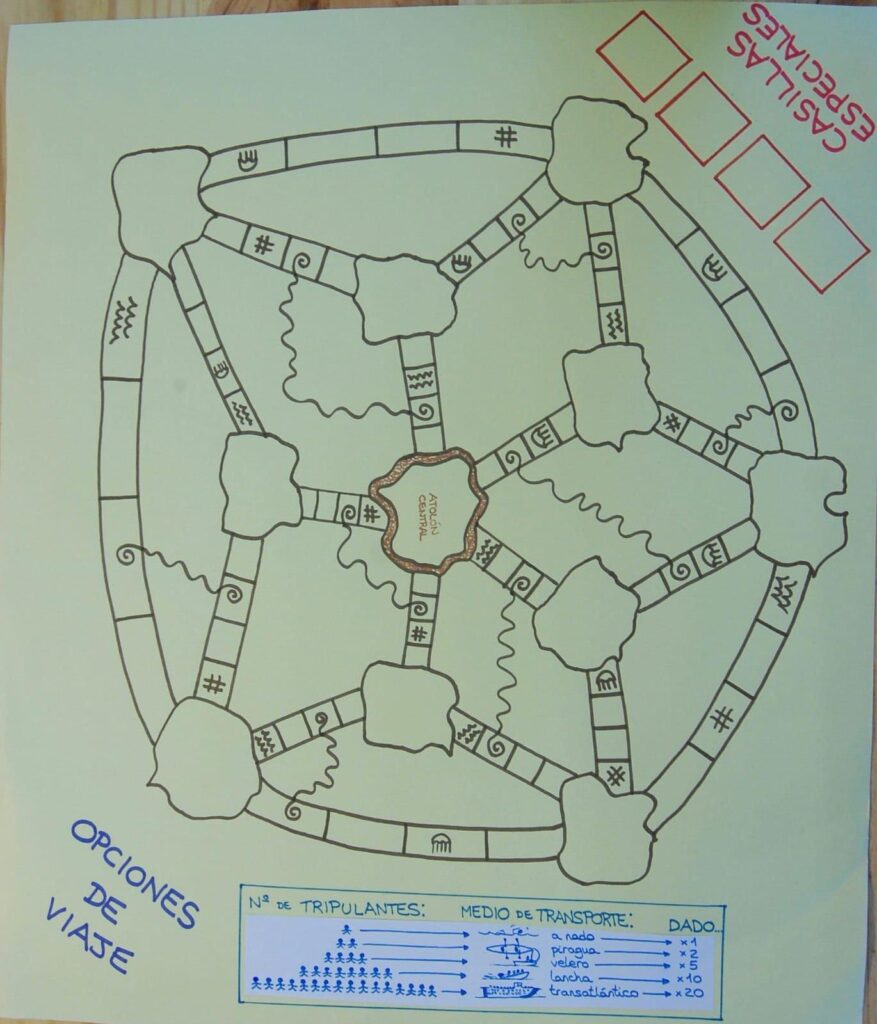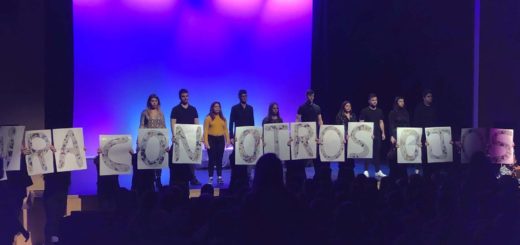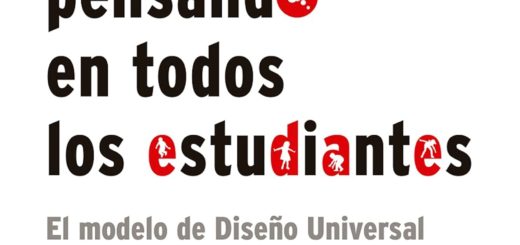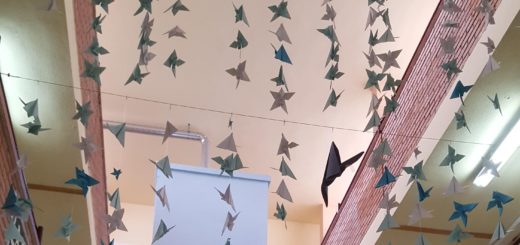Global Quest. Game-based participatory and co-design research methodology
To this end, we have used several participatory and co-design methodologies in which young people play a leading role (Calvo-Salvador et al. 2023; Rodríguez_Hoyos et al. 2023). One of the results of these methodologies has been the design of a cooperative game called “Global Quest: what do we paint on the planet?”. The origin of the game was in the workshop entitled: What worries us? carried out with boys and girls from several Asturian localities and members of the participation groups Los Glayus, aged between 12 and 16 years old. The workshop used the dynamics of worries (adapted by the research team from the one presented by James Beane (2005)). The purpose was to test a dynamic that could be used to gather information on what issues concern young people (individually and globally) and relate them to the dimensions of global citizenship.

Based on this workshop, and the feedback we received from the adolescents, it was decided to design an exploratory game with the aim of using it in different contexts to find out what young people think/what concerns them about the main axes of global citizenship: democracy and participation, human diversity, environmental sustainability, and human and social rights. It was conceived as a cooperative game (to be played by a minimum of 6 and a maximum of 12 people and with a recommended age between 12 and 18 years old). In the game, the players have to pass tasks based on a board and the metaphor of a sea of islands. The board represents a water planet with a central atoll and 6 habitable islands connected to each other by sea routes, which delimit seas. The objective of the game is to color (representing “save”, “make it a place where human and ecological rights are respected”) as many islands and seas as possible. Each island has a task and there are also transition activities. The tasks are related to all dimensions of global citizenship and include both physical/artistic expression and reflection and debate in a balanced way. All participants form a single team, with a common goal. During the game there will be different (flexible) travel sub-teams. What is colored/saved by one sub-team is colored/saved for everyone.

The game is currently in a very refined version since it has been tested and reformulated in many different contexts. We hope by the end of the year to be able to offer an open edition of the game that, together with its corresponding didactic guide, can be used with young people in different contexts.
References:
Beane,J. (2005). La integración del curriculum .Morata.
Calvo-Salvador, Adelina. et al. (2023) Investigar la cultura digital de jóvenes y adolescentes. Técnicas creativas y participativas. Santander. 30 págs. URI: https://hdl.handle.net/10902/32068 . ISBN: 978-84-09-54453-0
Fueyo Gutiérrez, Aquilina, Hevia Artime, Isabel Braga Blanco Gloria y Menéndez Álvarez-Hevia, David (2023a). Mapeando prácticas de educación para la ciudadanía global. Creando redes para la formación y la reflexión. En Las nuevas realidades Educativas: el uso de tecnologías emergentes para el aprendizaje. Dykinson.189-196
Fueyo, A., Braga, G. et al (2023b): Articular organizaciones y centros para construir ciudadanía global. En Álvarez, A. (Coord.). Organización y gestión de edusistemas en transformación: retos, visiones y propuestas de mejora. Editorial Universidad de Oviedo. ISBN: 978-84-18482-96-0
Rodríguez- Hoyos, Carlos; Calvo-Salvador, Adelina; Fueyo Gutiérrez, Aquilina & Braga Blanco, G. (2023). Youth Civic Engagement. New Strategies for Social Innovation. In LUÍSA CAGICA CARVALHO, et al (coords.) Handbook of Research on Solving Societal Challenges Through Sustainability-Oriented Innovation (pp. 328-351). IGI Global. DOI: 10.4018/978-1-6684-6123-5.ch017

Authors:
Gloria Blaga Blanco
Santiago Fano Méndez
Anus Teja de Juana
Juan Aguayo Bravo
IETIC-EVEA Team. Oviedo University






